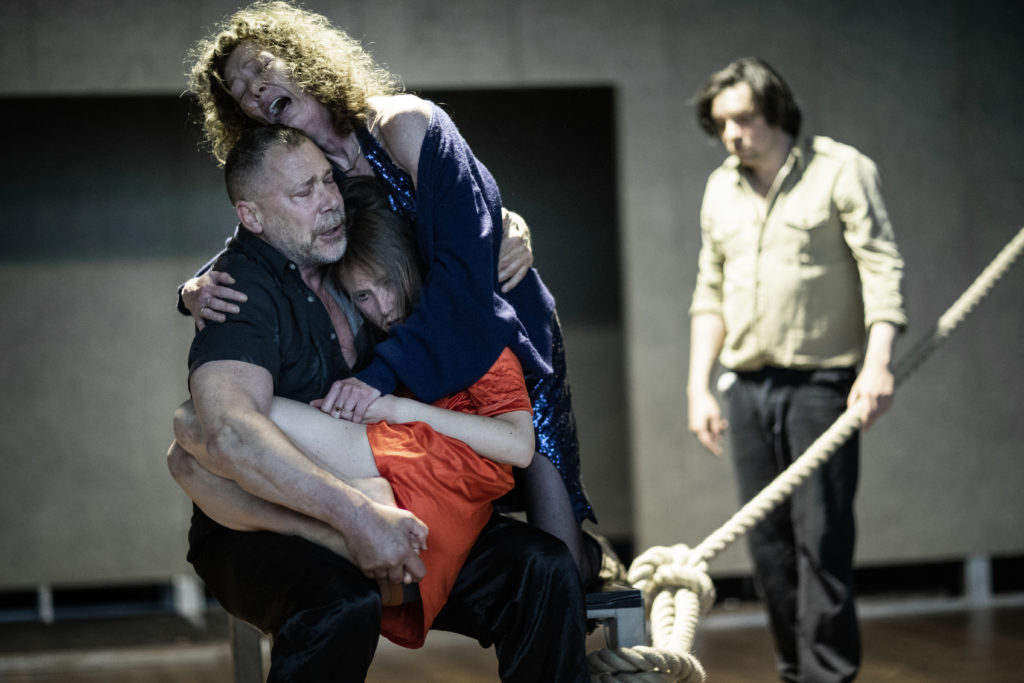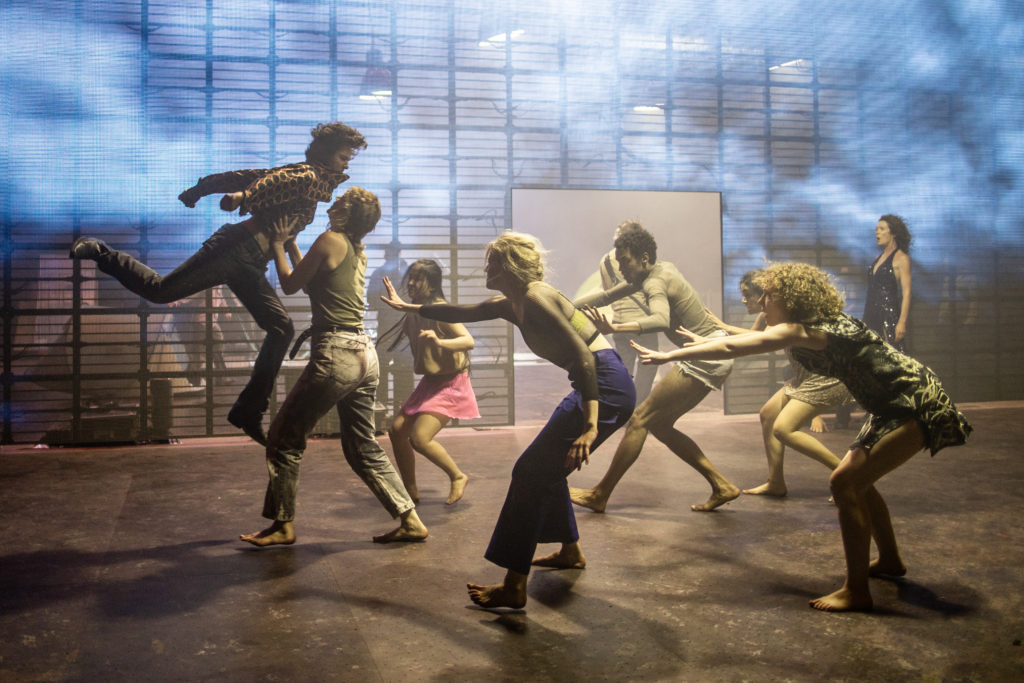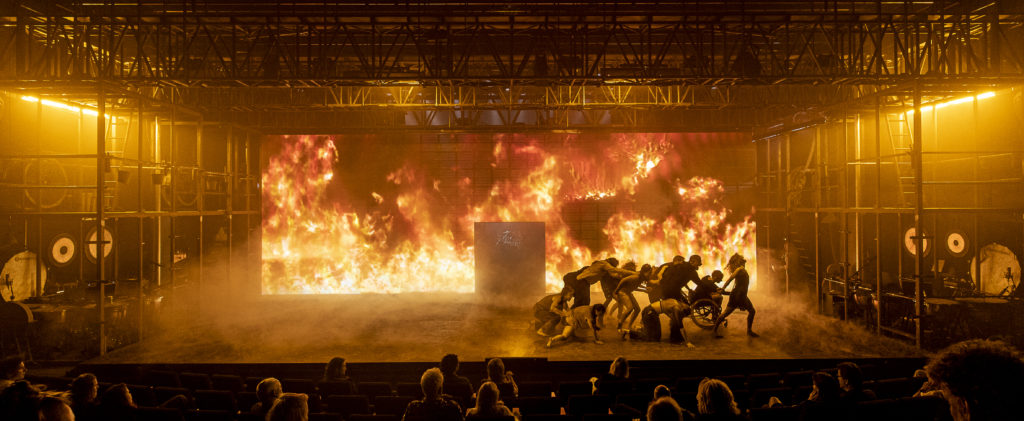Estimated reading time: 6 minutes
Greek tragedy can be notoriously difficult to stage, with its accounts of unbridled violence it can feel if done poorly like an unrelenting onslaught of human suffering. But when directors get it right it can feel like an unflattering reflection of our times. And that is how The Age of Rage feels, like a clear mirror to contemporary events we are witnessing now. So, as we watch the destruction of a modern European country by a fading superpower all because of a misreading of history it is easy to feel that we are in the heart of an ancient Greek tragedy. Therefore, this acclaimed production by the Internationaal Theater Amsterdam, of the Age of Rage arrives at London’s Barbican theatre at an appropriate moment. Based on six Greek tragedies by Euripides and one by Aeschylus, Age of Rage directed by Ivo van Hove tells the story of the fall of the house of Atreus, a family history of anger, violence and a desire for revenge which is passed on from one generation to the next like a curse. One which ultimately engulfs the lives of all it touches.
Created in dazzling raw colours and performed with blistering live rock music played, Ivo Van Hove in this production sketches the decline of a royal family against the background of the Trojan War. The tale begins with Tantalus, who plays a gruesome game with the gods by serving his own child as a meal, thus casting a curse on his offspring, the beginning of a senseless chain of murders and revenge. The play moves on to Greece on the eve of the Trojan war, where the wife of Menelaus elopes with the Trojan prince, Paris and sets in motion a war where the city states of Greece unite to bring Helen back and destroy Troy. Yet the gods will not allow the Greeks to depart until there is a sacrifice. The sacrifice they demand is the elected leader of the Greeks, Agamemnon’s beloved daughter Iphigenia. Agamemnon is therefore faced with the terrible dilemma of whether to act out of personal interest or what is best for the greater good. He chooses to sacrifice his daughter and justifies this act by saying he is doing it for the good of all Greeks but is he secretly also doing it for his own desire for glory? That is the question the play poses.
This sacrifice sets in motion a bloody chain of events, which will touch the lives of all the members of this family. In this case its Iphigenia’s mother, Clytemnestra, who bides her time to ultimately take her revenge, her actions are then the trigger for her murder by her own son egged on by her daughter Electra. This in turn leads to both Electra and her brother Orestis being condemned and exiled by the citizens of Athens.
The Trojan war is kept off stage we simply witness both the events which proceed it and its aftermath. An aftermath which includes the humiliation of the surviving Trojan women. Women whose husbands and sons have all been slaughtered. They are put in prisoner of war camps where they are divided up as gifts for the conquering army. Some to be killed as sacrifices to the slain soldiers while others to be made concubines to individuals. If nothing else the production highlights that those who suffer the most in any conflict are women. Something highlighted in the reports of atrocities committed in Ukraine by Russian soldiers which have included mass rapes, torture and deportations, all experiences that Ukrainian women have had.
This unrelenting cycle of violence and destruction only stops when the gods intervene and out of a sense of pity show a way out to the humans they decide to help. A way out of this desire for revenge so that the characters can find a way to return to their normal lives. The production though highlights the fact though that this way out has come about only because of divine intervention suggesting that sadly left on his own man will find no solution. The current situation in Ukraine suggest that this is probably an accurate assessment.
This house thrives only in anger
that leaves no time for repentance. Those who
have been banished for their crimes
return to commit a new one.
- Who’s watching Who?
- The Unreturning
- The Populist Tango
- The Story of the War (and the War of the Story)
- Ukraine and the West’s shattered wishful thinking









Therefore, this acclaimed production by the Internationaal Theater Amsterdam